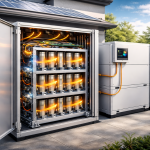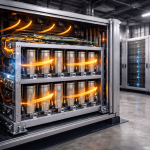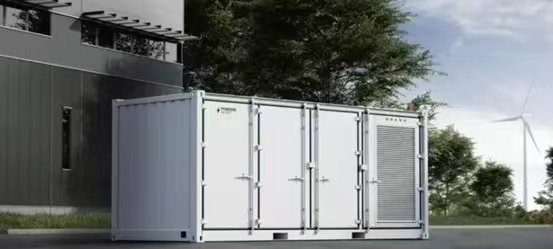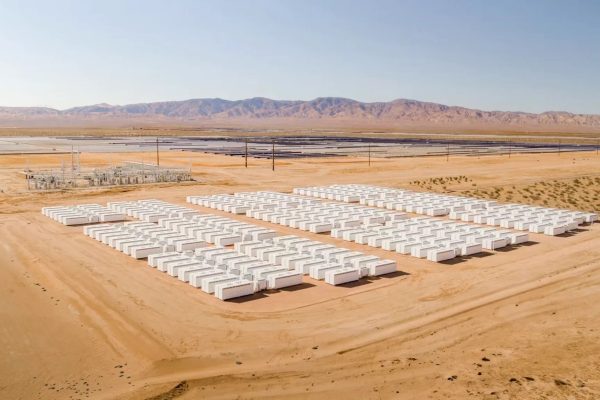Understanding Customer Priorities in Residential and Small Commercial Energy Projects
As solar + storage solutions gain traction in residential and small commercial markets, a key question for both integrators and end users emerges:
Should you buy an integrated PV+ESS package, or go for a modular, mix-and-match system?
There’s no universal answer. The decision often depends on technical needs, project scale, installer preferences, and — crucially — the buyer’s mindset.
This article breaks down the differences between integrated and modular PV+ESS solutions, compares their pros and cons, and helps you understand which option sells better — and to whom.
Definitions: What Do We Mean by Integrated and Modular?
| Type | Description |
|---|---|
| Integrated | Pre-engineered system combining solar inverter, battery, and controller in one unit or kit — designed and tested to work as a package. |
| Modular | Separately sourced components — solar inverter, batteries, BMS, EMS, etc. — selected and integrated at the project level. |
Examples:
- Integrated: An all-in-one hybrid inverter + battery system with PV input ports, factory-matched specs, and preloaded software.
- Modular: A project where the buyer selects a Growatt inverter, CATL LFP battery, and builds a custom cabinet.
Why Some Buyers Prefer Integrated PV+ESS Packages
✅ 1. Simplicity Sells
End-users and general contractors often look for one-stop solutions. An integrated package means:
- One vendor, one warranty
- Plug-and-play installation
- Factory testing = fewer surprises
Especially in residential projects (3–10kW), this ease of use is a major selling point.
🗣️ “I want something that just works. I’m not an engineer.” — Homeowner in South Africa
✅ 2. Lower Soft Costs
For small-scale installers or emerging markets, integrated systems reduce:
- Design time
- On-site configuration
- Troubleshooting hours
These savings matter more than minor hardware cost differences — particularly where labor is expensive or expertise is limited.
✅ 3. Easier Support & Warranty
An integrated system means the vendor takes responsibility for the whole solution. That makes post-sale service faster and more reliable — no finger-pointing between inverter and battery brands.
Why Technical Buyers Still Prefer Modular Systems
✅ 1. Customization and Flexibility
Modular systems are often preferred by:
- Professional EPCs
- Installers familiar with system design
- Clients with specific space, load, or runtime requirements
They allow tailored choices in:
- Battery chemistry (LFP vs. NMC)
- Inverter topology (string vs. micro)
- Cabinet layouts
- Communication protocols
If the client needs dual PV inputs, off-grid autonomy, or scalable backup runtime, modular often wins.
✅ 2. Easier Upgrades and Replacements
A homeowner may want to add batteries later, or swap inverters if grid regulations change. Modular systems allow this without replacing the whole setup.
✅ 3. Price Control in High-Volume Projects
Distributors, wholesalers, and OEM-focused clients may find better margin and control when buying parts separately. This is especially true when:
- Procurement happens in volume
- Technical knowledge is available
- System optimization is part of the value proposition
Cost Comparison: Not as Obvious as It Looks
| Item | Integrated System | Modular System |
|---|---|---|
| Hardware Cost | Moderate | Potentially lower or higher |
| Installation Cost | Lower (plug-and-play) | Higher (custom work required) |
| Design/Firmware Time | Low | Medium to High |
| Warranty Complexity | Simple (single provider) | More complex |
| Scalability/Futureproofing | Moderate | High |
Bottom line: Integrated wins on simplicity; modular wins on flexibility.
Real-World Buyer Profiles
🔹 Who Buys Integrated Systems?
- Homeowners with no technical background
- General contractors who want “PV + battery in a box”
- Small installers in remote regions
- Distributors selling ready-to-install kits in retail settings
Example: A 5kW/10kWh all-in-one solution for a villa in Kenya, sold via local solar dealer.
🔹 Who Buys Modular Systems?
- EPC firms building commercial rooftops
- Buyers in subsidy-driven markets (e.g., Germany, Japan) who optimize for regulations
- Tech-savvy users who want full control
- Installers supporting unusual load profiles
Example: A 20kW/40kWh setup for a telecom site using a Victron inverter and BYD rack batteries.
Communication & Integration: Where Many Projects Fail
In modular systems, a key risk is protocol mismatch. For example:
- Inverter speaks CAN, battery uses RS485
- EMS conflicts with inverter firmware
- No standardized charge/discharge control
If the buyer isn’t technical, this is a nightmare. That’s why non-technical clients often prefer integrated systems, where compatibility is factory-tested.
How to Guide Buyers Through the Decision
Ask Them:
- Do you prefer convenience or configurability?
- Will you expand capacity later?
- Who will support the system after installation?
- What’s the on-site technical capability?
- Do you want price control or simplicity?
Then match your solution pitch accordingly.
Which One Sells Better?
✅ In price-sensitive, DIY-light, or first-time markets → Integrated
- Pre-wired
- Branded
- Drop-shippable
- Less training needed
✅ In performance-driven or technically capable markets → Modular
- Lower BOM cost at volume
- Custom configuration
- Scalable
- Integrates with other systems (e.g., diesel, hydro)
As a Technical Trade Partner, Your Role Is Key
As a system integrator, trader, or installer, your job is not just to sell product — but to help clients:
- Avoid under- or over-engineering
- Choose a system that fits their use case and risk tolerance
- Balance simplicity vs. flexibility
This guidance builds trust — and repeat business.








